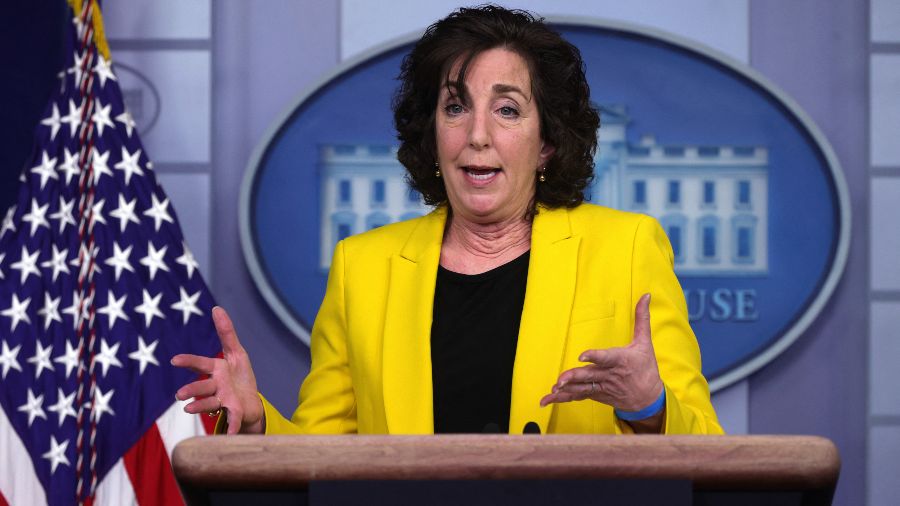
The coordinator of the southern border in the White House, Roberta Jacobson, has explained that Biden will put conditions on the 4 billion he wants to deliver over the next four years in El Salvador, Honduras and Guatemala.
Not a dollar of the 4 billion that U.S. President Joe Biden wants to deliver in Central America it will end up in the hands of its presidents, said this Wednesday the coordinator of the southern border in the White House, Roberta Jacobson.
“None of the money we want to get from Congress and U.S. taxpayers will go to the leaders of those governments,” Jacobson said at a White House news conference.
The official explained that Biden will put conditions on the 4 billion it wants to deliver over the next four years in the Central American North Triangle (El Salvador, Honduras and Guatemala).
SEE: Congressman Jim McGovern: “I worry and disappoint” the authoritarian path El Salvador is following
Specifically, he indicated that Washington wants most of the aid to go to NGOs, international organizations and religious institutions working in the field with the people of these countries, who, having no opportunities, are forced to migrate to United States.
The Washington announcement coincides with drug trafficking charges against Honduran President Juan Orlando Hernandez, which have come to light during a trial in New York against an alleged drug trafficker with whom the Honduran president cooperated for years, according to prosecutors.
Asked about this, Jacobson avoided commenting specifically on Hernandez, but reiterated that Biden wants the aid to go to civil society organizations, rather than relying on Central American governments to distribute it.
“It’s not that presidents aren’t important in these countries, but it’s important to understand that we will work with civil society, international organizations, and various international NGOs on the ground,” he said.
“We will work with the officials we can work with, but I think it is very important that these countries make very explicit commitments to move forward in the fight against corruption, we know that in some countries this will be difficult,” Jacobson said.
YOU MAY BE INTERESTED IN: US Congressmen. UU. They ask Biden not to support abuse, political violence and corruption of the Bukele government
And, still without mentioning Hernandez, he added, “if you have officials on whom a cloud weighs, then I think we need to work with the organizations we can in those countries.”
The idea of putting conditions on foreign aid is not new, and during the Barack Obama administration (2009-2017), Congress put a lot of pressure on funds to be tied to specific goals in the fight against corruption and drug trafficking. .
Later, former President Donald Trump (2017-2021) suspended foreign aid to the Northern Triangle on the grounds that his governments were not doing enough to curb immigration to the north.
For his part, when he was Obama’s vice president, Biden played a central role in the design of the Plan for the Prosperity Alliance for the North Triangle of Central America, which sought to award 750 million to these countries with the goal of ending the causes of migration: poverty, lack of economic opportunities and violence.
Biden has made it clear that he still believes in these principles, but his Government has emphasized that the fight against corruption will be a central part of its policy towards Central America.
YOU MAY BE INTERESTED IN: U.S. Congress restricts military funding for El Salvador Armed Forces